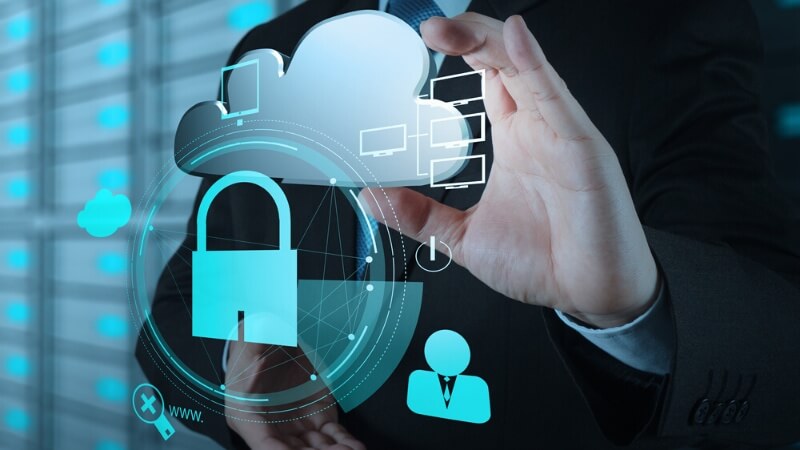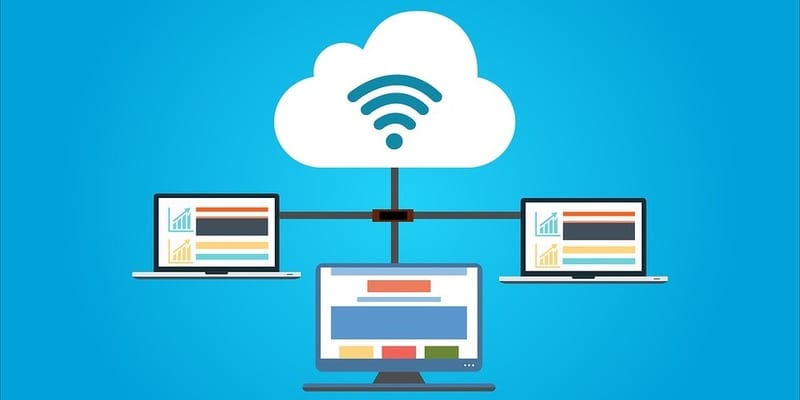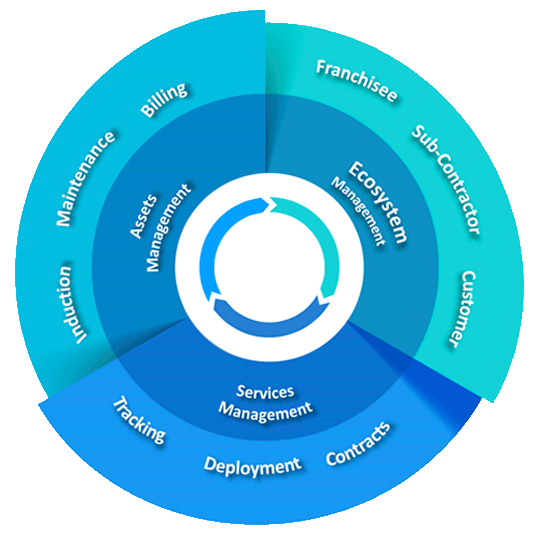What Is Enterprise Resource Planning System
Enterprise Resource Planning System have revolutionized the way businesses function and manage their day-to-day operations. As technology continues to advance and businesses grow, the need for a comprehensive and integrated system to manage resources, data, and processes becomes increasingly important. This is where an Enterprise Resource Planning system comes in. In this beginner’s guide, we will explore what an ERP system is, how it works, and the benefits it can bring to businesses of all sizes. So, buckle up and get ready to dive into the world of ERP systems, where efficient management and optimization of resources are key to business success.
What is Enterprise Resource Planning (ERP)?
Enterprise Resource Planning (ERP) is a software system designed to optimize and automate business operations and resources in an organization. It integrates various functions such as finance, human resources, manufacturing, supply chain, customer relationship management, and more, into a centralized system. By doing so, ERP streamlines business processes, reduces operational costs, and increases overall efficiency. With ERP, businesses can manage everything from procurement to production, and from inventory to invoicing, on a single platform.
ERP software has evolved to become a powerful tool for enterprise-wide integration and collaboration. It eliminates the need for manual data entry, reduces redundancy, improves data accuracy, and provides real-time access to information. With an ERP system, businesses gain better visibility into their operations, which allows them to make informed decisions. Moreover, ERP improves communication between departments and stakeholders, promotes collaboration, and creates a more agile and responsive business environment. It helps businesses to stay competitive by enabling them to adapt to changing market conditions and customer demands.
Enterprise Resource Planning (ERP) is a vital software system that drives modern businesses. It integrates various functions, automates complex processes, provides insights, and enables collaboration. ERP solutions are available in a wide range of applications tailored to specific industries and business needs. With the right ERP software, businesses can streamline their operations, boost their productivity, and drive their growth.

Different Types of ERP Systems Available on The Market Today
There are several types of ERP systems available on the market today, each with its own unique features and capabilities. While some may cater to specific industries or businesses, others are more general-purpose solutions that can be customized to meet individual needs. Here are some of the most common types of ERP systems:
- On-premise ERP: This type of ERP system is installed locally on a company’s own servers and hardware. Organizations have full control over the system, but it requires a larger upfront investment for software licenses, infrastructure, and maintenance.
- Cloud-based ERP: In contrast to on-premise systems, cloud-based ERP is hosted on remote servers and accessed through the internet. This eliminates the need for expensive hardware and allows for more flexibility as businesses can scale up or down their usage as needed. Additionally, updates and maintenance are handled by the ERP provider.
- Hybrid ERP: A hybrid ERP system combines both on-premise and cloud-based solutions, providing businesses with the flexibility of cloud-based systems while also allowing for control over sensitive data through on-premise storage.
- Industry-specific ERP: These are specialized ERP systems designed for specific industries, such as manufacturing, healthcare, or retail. They come with industry-specific features and processes to better cater to the unique needs of each industry.
- Open-source ERP: Open-source ERP systems are free to use and can be customized according to an organization’s requirements. However, they usually require technical expertise for implementation and maintenance.
- Small Business ERP: As the name suggests, this type of ERP system is designed for small businesses and startups with a limited budget. These systems offer basic functionality at an affordable price.
No matter what type of ERP system a business chooses, it is important to carefully evaluate its features, scalability, and support before making a decision. Selecting the right ERP software can greatly impact a company’s efficiency, productivity, and growth potential.
Key Features of an ERP System and How They Can Benefit Your Business
ERP systems offer a multitude of features that can greatly benefit businesses in various ways. Here are some key features and their potential benefits:
- Centralized Database: ERP systems store all data in a centralized database, making it easily accessible and reducing the chances of errors or discrepancies.
- Real-time Reporting: With an ERP system, businesses can generate real-time reports on various aspects of their operations, such as sales, inventory, and finances. This allows for better decision-making and faster response to changes in the market.
- Automation: ERP systems automate complex processes, reducing manual work and human error. This frees up employees’ time to focus on more important tasks.
- Scalability: As businesses grow, they need a system that can scale with them. ERP systems offer scalability, allowing businesses to add new modules and functionalities as needed.
- Multi-Channel Integration: With an ERP system, businesses can integrate various channels such as online stores, social media platforms, and physical stores into one centralized system. This ensures consistent data across all channels and a seamless customer experience.
- Enhanced Security: ERP systems come with various security features, such as access controls and encryption, to protect sensitive data from unauthorized access.
With its multitude of features and capabilities, ERP can provide a competitive advantage by streamlining processes, improving efficiency, and fostering collaboration.

Common Challenges with Implementing and Maintaining an ERP System
While ERP systems offer numerous benefits, implementing and maintaining them can be challenging. Here are some common challenges that organizations may face:
- Cost: Implementing an ERP system requires a significant investment in terms of software licenses, hardware, training, and maintenance.
- Complexity: ERP systems are complex with multiple modules and integrations. It can take time to fully implement and integrate all the necessary functions.
- Resistance to Change: Switching to a new system can be met with resistance from employees who are used to working with existing processes and software.
- Data Migration: Migrating data from legacy systems or spreadsheets into the ERP system can be time-consuming and prone to errors.
- Customization: Customizing an ERP system to fit specific business needs can be a challenging and costly process.
- Training: Employees need to be trained on how to use the new system, which can be time-consuming and may affect productivity during the transition period.
Addressing these challenges requires careful planning, proper training, and selecting an ERP solution that best fits the organization’s needs.
How to Ensure Your ERP System is Meeting Your Business Needs
To make the most out of an ERP system, businesses need to regularly assess its performance and functionality. Here are some tips for ensuring your ERP system is meeting your business needs:
- Evaluate the ROI: Regularly measure the return on investment (ROI) of your ERP system by looking at key performance indicators (KPIs) such as cost savings, productivity improvements, and revenue growth.
- Conduct User Surveys: Ask employees how the ERP system has impacted their work and if there are any areas for improvement.
- Monitor System Performance: Keep track of system performance, such as response times, downtime, and error rates, to identify any potential issues.
- Stay Up-to-date with Updates: Regularly update your ERP system to ensure it is running on the latest version with all the necessary patches and bug fixes.
- Review Business Requirements: As businesses evolve, their ERP system needs may change. Regularly review your business requirements to ensure your ERP system is still meeting them.
By regularly evaluating and adapting the ERP system, businesses can ensure that it continues to meet their evolving needs and remains a valuable asset for their operations.

ERP systems have become an essential tool for businesses looking to streamline processes, improve efficiency, and gain a competitive edge. With various types of ERP systems available and numerous features to choose from, organizations need to carefully evaluate their options before making a decision. Additionally, regularly assessing the performance of the ERP system can ensure that it continues to meet business needs and drive growth. By choosing the right ERP system and continuously monitoring its effectiveness, businesses can reap the benefits of this powerful software solution. So, it is important to keep in mind that ERP systems are not a one-time investment; they require maintenance, updates, and continuous evaluation to ensure they continue to provide value for the organization.
